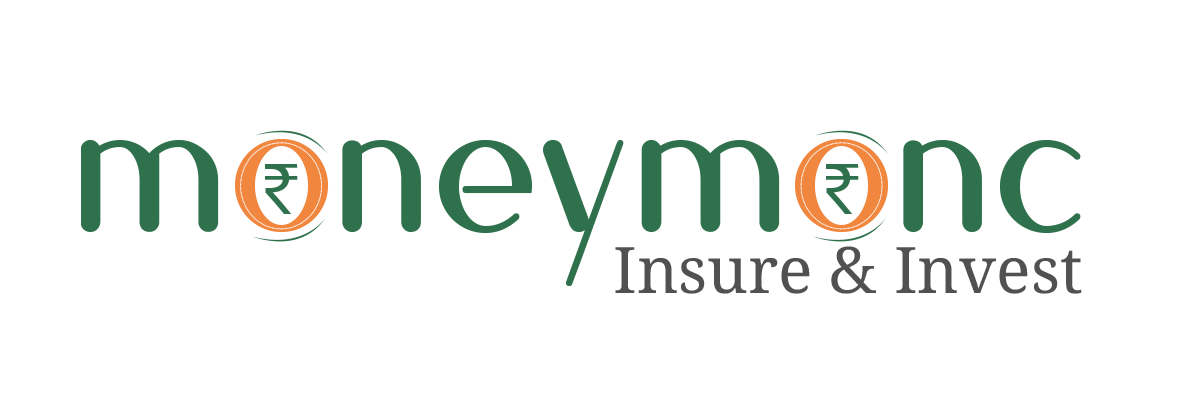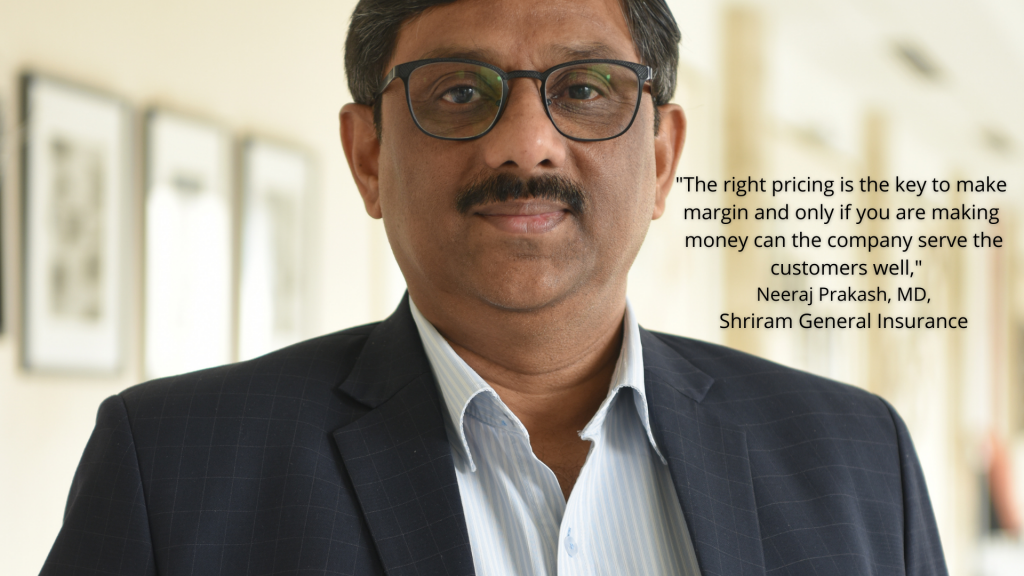Covid-19 has had a heavy impact on Shriram General Insurance as sales of commercial vehicles and three wheelers, its mainstay from parent Shriram Transport Finance, had come to a standstill during the lockdown. With many vehicle owners stranded due to loss of income, it became very difficult for them to pay insurance premium. Consequently, Shriram General Insurance reported a negative growth of 30 per cent in FY21 and its profit before tax also declined to Rs 770 crore from Rs 1001 crore in the previous fiscal.
Neeraj Prakash, MD, Shriram General Insurance said the company had to adapt quickly to the changes following the pandemic and lockdown. They decided to start operating from home.
“It was a tough call for us because the marketing team particularly is used to being in the marketplace, meeting with the intermediaries, going to meet with the customers,” he said.
“I can say that this was good learning for all of us…how we can be in touch with the intermediaries as well as with the customers remotely, so people have started working from home and it has gone very well,” he added.
The insurer had already developed a mobile application pre-Covid to take care of issuing the policy during the pre-inspection part, which helped the company. Prakash said the initial 2-3 months of the pandemic were very tough for them but after May-June 2020, the company began operating with one-third staff strength from their branches as well as their head office.
However, the second wave of Covid was a huge challenge as it impacted the economy. With 95 per cent of the portfolio belonging to motor insurance unlike other general insurers (where it is around 60 to 70 per cent), the company took a hit.
Focus on third party motor insurance
Motor insurance business in India has traditionally been one of the trickier businesses with insurers making huge historic losses from third party insurance which is compulsory by law for every vehicle on the road. The tariff is also decided by the insurance regulator.
However, riding on the expertise and experience of its parent group Shriram Transport Finance, the general insurer has been able to manage this portfolio very well.
As the first round of screening is already done about the customer profile, the general insurer does a second round of screening to ensure there is no malpractice and maintains its loss ratios under 100 per cent, said Prakash.
Insurers have traditionally made profits in the Indian market primarily through investment income but Shriram General insurance has made underwriting profits pre-Covid.
Prakash firmly believes that right pricing is the key to make margin and only when the company is making money can it serve the customers well.
Digital claims assessments
Prior to covid, the company had started processing on-the-spot claim settlement for low-ticket claims by asking the customer to send 360-degree photographs or video, and discusses the claim amount with the customer. On their agreement, the claim is settled on the spot.
However, for bigger claims, one of the other challenges from the pandemic was to make the digital move for the survey of vehicles. Traditionally, the surveyor used to go to the garage 2 to 3 times to check on the progress of the vehicle but after Covid restrictions, the surveyor sends a small video to the company’s centralised claims office in Jaipur on the basis of which the claim assessment is made.
Strategy on non-motor insurance
The focus of the company this year is to grow its non-motor business, through the uninsured segment of small businesses with shopkeeper’s insurance and Fire Loss of Profit Insurance (FLOP).
“During a survey of the shopkeepers, we found that 80-90% shops are uninsured. It is their bread and butter. But most insurance companies are not focusing because the premium size is very small and efforts are very large.”
Yet, the company is selling very aggressively to the shop keepers because it wants to cover the lower strata under insurance.
“In case of any casualty they can still take care of their family if insured,” he added.
Prakash said the most important thing during the pandemic is that every company must take care of their employees by retaining them despite performance issues, offering remote work and supporting them and their families during this tough period. In the next 2 to 3 years, the general insurer plans to enter the health insurance space and expand its pie of non- motor insurance business.


